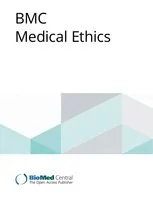As opioid use disorder (OUD) incidence and its associated deaths continue to persist at elevated rates, the development of novel treatment modalities is warranted. Recent strides in this therapeutic area include novel anti-opioid vaccine approaches. This work compares logistical and ethical considerations surrounding currently available interventions for opioid use disorder with an anti-opioid vaccine approach. The opinions of stakeholders toward current and future OUD management strategies are characterized using a multi-modal research approach incorporating focus groups and survey deployment. Survey responses are assessed using one- and two-way parametric and non-parametric analyses where appropriate, and multi-dimensional matrix proles were compared using z-tests following an exhaustive combinatorial sum of differences calculation between items within each compared matrix.
Primary Findings
Focus group content analysis revealed a high level of agreeableness among participants regarding anti-opioid vaccine technology and a sense of shared ownership regarding solutions to the opioid epidemic at large. Access inequality was the most concerning ethical consideration identified for anti-opioid vaccines. Support for anti-opioid vaccine implementation across various clinical scenarios was strongest for voluntary use amongst individuals in recovery, and lowest for mandatory use in at-risk individuals. Anti-opioid vaccines were endorsed as helpful potential additions to current OUD therapeutic approaches, particularly for voluntary use in the later stages of clinical progression.
Future Directions
Expansion of survey and focus group assessments to additional stakeholders, particularly other healthcare providers, payers, and patients, is a primary goal for the next phase of this project.
Grant information
Logistical/Institutional Support for this project was provided by:
- NCATS grants UL1TR000427 and UL1TR002373 to the UW ICTR
- PearlRx network

